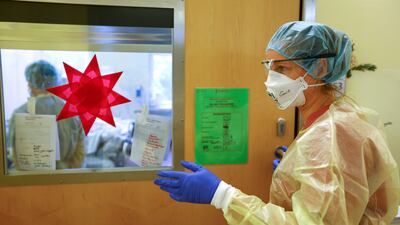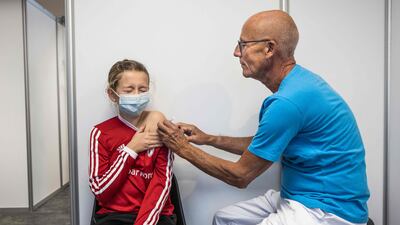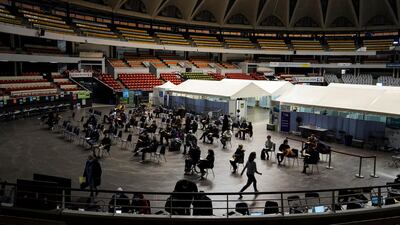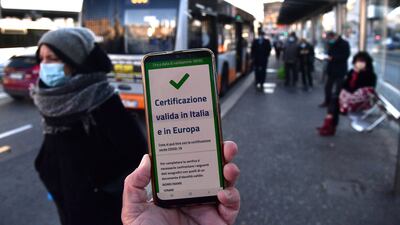The number of Omicron Covid-19 cases in Demark has tripled in just two days as governments across Europe rush to contain the spread of the new variant.
At least 42 new cases were identified in the country on Sunday, up from 18 cases recorded on Friday, according to data from the country's SSI public health institute.
The European Centre for Disease Prevention and Control (ECDC) had previously tallied just 182 cases across all of the European Union, plus Norway and Iceland.
The SSI's chief described the rise as “concerning” and said there was now evidence of “chains” of Omicron infection which are not linked to foreign travel.
Denmark is one of Europe's most advanced countries in sequencing of coronavirus variants and often detects cases more quickly than its neighbours. The sharp rise in Omicron cases does not necessarily indicate higher rates of infection.
The Omicron variant was first identified in southern Africa, resulting in a number of travel restrictions being placed on countries such as South Africa and Botswana.
Also on Sunday, the ECDC said Omicron had been reported in 17 countries in its region.
“The majority of confirmed cases have a history of travel to countries in Africa, with some having taken connecting flights at other locations between Africa and Europe,” the ECDC said on its website before the Danish announcement.
Nevertheless, “several EU/EEA countries (Belgium, Germany, Spain) detected cases without an epidemiological link to areas where community transmission of the Omicron variant is documented or presumed,” it added.
“This indicates that undetected community transmission could be ongoing in these countries.”
The rise of the Omicron strain has led to a renewed push for vaccine booster shots by European governments to limit its spread.
Italy tightened curbs on Monday on people still not vaccinated against Covid-19, limiting their access to an array of places and services.
Under the new rules, only people who have been vaccinated or have recently recovered from Covid-19 can access indoor seating at bars and restaurants, visit museums, go to cinemas and clubs and attend sporting events. The measures are expected to be in place until January 15.
Elsewhere, the incoming German government wants to make vaccinations mandatory from March 16 for people working in hospitals, nursing homes and other medical practices, reports say.
The Social Democrats, Greens and Free Democrats, which are set to form the new German government on Wednesday, will present the legislation to parliament in the coming week.















